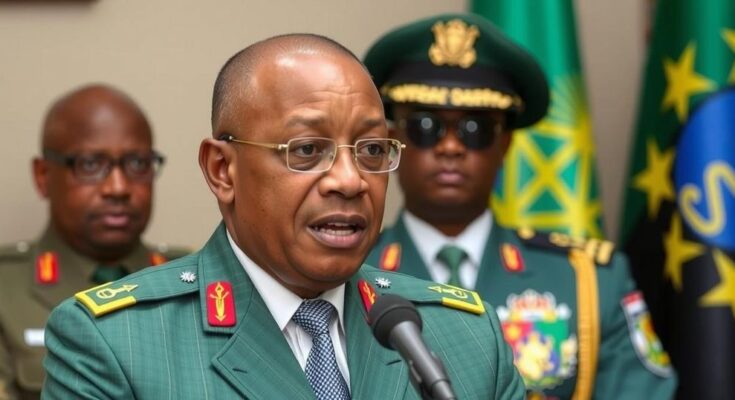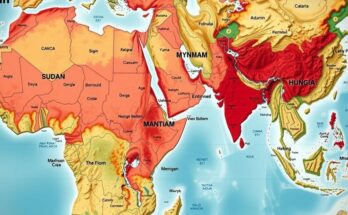Ethiopia’s Defence Minister Aisha Mohammed Mussa visited Somalia, marking a thaw in relations following tensions over Ethiopia’s naval base plans in Somaliland. This visit comes as both countries aim to resolve disputes while Ethiopian troops continue their peacekeeping role against Al-Shabaab insurgents, despite Somali threats of expulsion. The situation around Somaliland’s autonomy plays a central role in these diplomatic efforts.
On Thursday, Ethiopia’s Defence Minister, Aisha Mohammed Mussa, made a significant visit to Somalia, marking the first bilateral engagement since relations deteriorated over an Ethiopian plan to establish a naval base in the breakaway region of Somaliland. The visit was confirmed by Ali Omar, Somalia’s State Minister for Foreign Affairs, to Reuters, although specific discussions during the visit were not disclosed. The Ethiopian government spokesperson did not provide any comments regarding the visit.
Currently, approximately 10,000 Ethiopian troops are stationed in Somalia as part of an African Union peacekeeping operation, combating the Islamic militant group Al-Shabaab. However, this military presence is controversial, especially after Somalia threatened to expel Ethiopian forces if Ethiopia did not retract its agreement with Somaliland, which involves leasing a coastline for a proposed naval base.
Somaliland, while functioning with effective autonomy since 1991, has not received official recognition from other nations, including Somalia, which views it as part of its territory. The Somali government labeled Ethiopia’s agreement with Somaliland as an act of aggression, leading to heightened tensions between the two nations. After months of escalating rhetoric, a dialogue initiated in December between Somali and Ethiopian officials in Turkey set the stage for potential negotiations to resolve the conflict.
The Ethiopian forces in Somalia play a crucial role in combating Al-Shabaab, an affiliate of Al-Qaeda that has perpetuated violence in the region since 2007. The potential withdrawal of these troops raises concerns regarding Al-Shabaab’s resurgence and wider instability in the Horn of Africa as Somalia has increasingly allied itself with Ethiopia’s traditional adversaries, Egypt and Eritrea, in response to the Somaliland deal.
The complexities of the relationship between Somalia and Ethiopia have historical roots, exacerbated by the contested status of Somaliland. Ethiopia’s strategic interests involve establishing a naval presence, which Somalia perceives as a direct threat to its sovereignty. The agreement between Ethiopia and Somaliland regarding the proposed naval base has been a point of contention, raising alarm over potential shifts in regional power dynamics and security, particularly in light of ongoing security threats from Al-Shabaab. As both nations navigate this delicate relationship, their actions have implications not only for bilateral ties but also for broader geopolitical stability in the Horn of Africa.
In conclusion, the visit of Ethiopia’s Defence Minister to Somalia represents a crucial step towards mending a fractured relationship. It highlights the ongoing challenges of regional security dynamics, particularly concerning the presence of Ethiopian troops in Somalia and the contentious agreement with Somaliland. As both nations seek to collaborate in finding resolutions, their efforts will significantly impact the stability of the Horn of Africa amidst rising threats from militant groups.
Original Source: www.newarab.com




